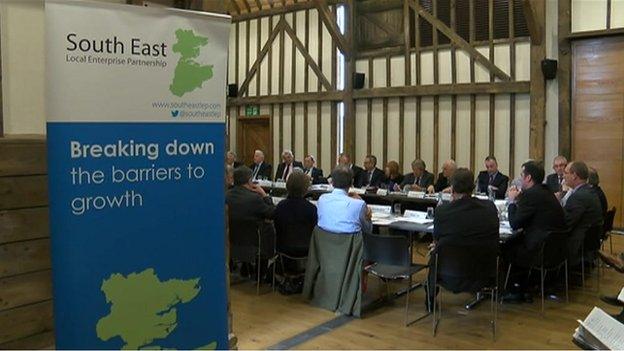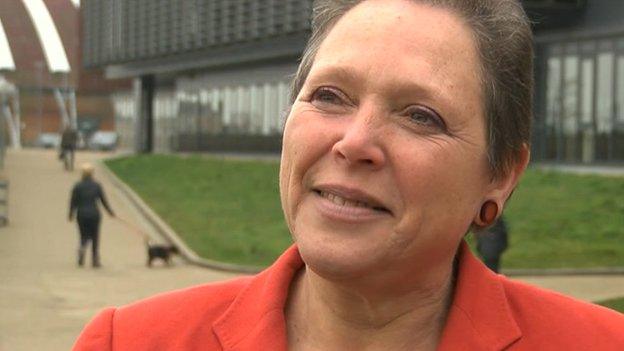Case for 'exemplar' Local Enterprise Partnership was 'weak'
- Published

Communities secretary Eric Pickles says the South East LEP is an 'exemplar' body others should 'follow'
The case for creating a partnership controlling hundreds of millions of pounds of government cash was considered "weak", it has emerged.
Local Enterprise Partnerships (LEPs) combine businesses, councils and others to decide regional funding priorities.
Communities secretary Eric Pickles described the South East LEP as an "exemplar" body.
But the BBC has learned officials had serious concerns about the size of the South East LEP from the outset.
The area covered by the LEP, which was signed off in 2010, stretches from Eastbourne to Colchester and from Saffron Walden to Folkestone.

Each of the country's 39 LEPs were meant to follow "natural economic geography"
It decides on priorities for government spending in the region on areas such as roads, rail, housing and skills and is responsible for distributing about £500m of government money, until 2021.
Original advice from officials within the Department for Business, Innovation and Skills, seen by the BBC, was that the case for the "natural economic geography" of joining the South East areas together was "weak".
The advice said: "There seems little direct economic link between these areas and it is difficult to see what a large area would add to decision-making."

Transport minister Baroness Kramer said the most important question about LEPs was whether they worked
Reacting to the BBC's discovery, David Burch, of the Essex Chamber of Commerce, said: "I don't think it (the South East) is a functional economic area.
"We think there could be a good case for creating a single-county LEP."
And a senior figure at Essex County Council, who asked not to be identified, suggested that the idea for the South East LEP had little support from the local authority.
But Transport Minister Baroness Kramer said economies did not follow traditional boundaries.
"LEPs have real capability both to monitor and deliver projects. I would assess that this one does," she said.
"I think this is going to be a very successful programme and that is what we should be concerned with - 'does it work?' rather than thinking endlessly if we can find three other ways to think about how we can design it.
"The proof of the pudding is in the eating."
- Published10 February 2015
- Published17 February 2013

- Published7 September 2010